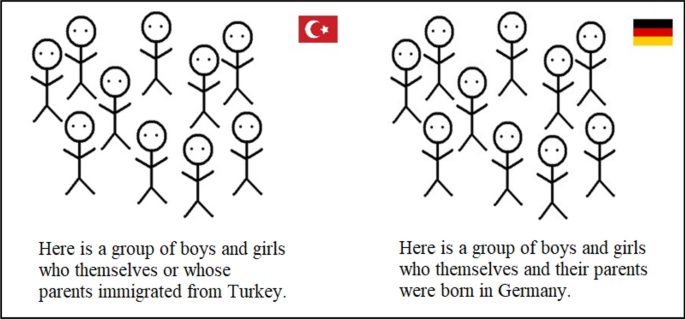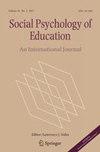别人怎么看我的团队?青少年对土耳其和德国裔学生学科相关德语和一般学校能力的元刻板印象
IF 3.2
2区 心理学
Q1 PSYCHOLOGY, EDUCATIONAL
引用次数: 0
摘要
在德国,土耳其裔学生面临来自社会不同群体(包括学校教师)的负面能力刻板印象。虽然大量的研究调查了对移民学生的刻板印象(即其他刻板印象),但对他们自己与能力相关的元刻板印象知之甚少,即外群体同伴对他们的其他刻板印象。本研究通过使用一种新开发的结合语言和非语言测量的工具,研究土耳其裔和德国裔学生关于两个尚未调查的能力维度的元刻板印象,即土耳其裔和德国裔学生的学科相关德语能力以及他们的一般学校能力,从而解决了这一研究空白。这些评估与一组具有其他移民背景的同龄人的评估(即其他人的元刻板印象)并列。与之前的证据一致,我们发现所有三组都报告了对德国裔学生的积极元刻板印象(以及其他和他人的元刻板印象)。然而,我们的研究是第一个支持所有参与者对土耳其裔青少年存在负面元刻板印象(以及其他和他人的元刻板印象)的研究。这种模式在与学科相关的德语能力方面尤为明显。我们讨论了研究结果对学生自我概念和课堂上群体间互动的潜在相关性。本文章由计算机程序翻译,如有差异,请以英文原文为准。

How do others think about my group? Adolescents’ meta-stereotypes about Turkish- and German-origin students’ subject-related German and general school competence
Abstract In Germany, Turkish-origin students face negative competence-related stereotypes held by different groups in society, including teachers at school. While a large body of research has examined stereotypes (i.e., other-stereotypes ) about immigrant students, little is known about their own competence-related meta-stereotypes , i.e., beliefs regarding the other-stereotypes that outgroup peers hold about them. The present study addresses this research gap by examining Turkish- and German-origin students’ meta-stereotypes about two dimensions of competencies not yet investigated, namely Turkish- and German-origin students’ subject-related German competence as well as their general school competence using a newly developed instrument combining verbal and non-verbal measures. These assessments are juxtaposed to the evaluations of a group of peers with other immigrant backgrounds (i.e., others’ meta-stereotypes ). In line with previous evidence, we found positive meta-stereotypes (as well as other- and others’ meta-stereotypes) towards German-origin students reported by all three groups. However, our study is the first that supports the existence of negative meta-stereotypes (as well as other- and others’ meta-stereotypes) towards Turkish-origin adolescents, again, among all participants. This pattern was particularly pronounced regarding the dimension of subject-related German competence. We discuss the findings’ potential relevance for students’ self-concepts and intergroup interactions in classrooms.
求助全文
通过发布文献求助,成功后即可免费获取论文全文。
去求助
来源期刊

Social Psychology of Education
PSYCHOLOGY, EDUCATIONAL-
CiteScore
5.40
自引率
3.40%
发文量
59
期刊介绍:
The field of social psychology spans the boundary between the disciplines of psychology and sociology and has traditionally been associated with empirical research. Many studies of human behaviour in education are conducted by persons who identify with social psychology or whose work falls into the social psychological ambit. Several textbooks have been published and a variety of courses are being offered on the `social psychology of education'', but no journal has hitherto appeared to cover the field. Social Psychology of Education fills this gap, covering a wide variety of content concerns, theoretical interests and research methods, among which are: Content concerns: classroom instruction decision making in education educational innovation concerns for gender, race, ethnicity and social class knowledge creation, transmission and effects leadership in schools and school systems long-term effects of instructional processes micropolitics of schools student cultures and interactions teacher recruitment and careers teacher- student relations Theoretical interests: achievement motivation attitude theory attribution theory conflict management and the learning of pro-social behaviour cultural and social capital discourse analysis group dynamics role theory social exchange theory social transition social learning theory status attainment symbolic interaction the study of organisations Research methods: comparative research experiments formal observations historical studies literature reviews panel studies qualitative methods sample surveys For social psychologists with a special interest in educational matters, educational researchers with a social psychological approach.
 求助内容:
求助内容: 应助结果提醒方式:
应助结果提醒方式:


